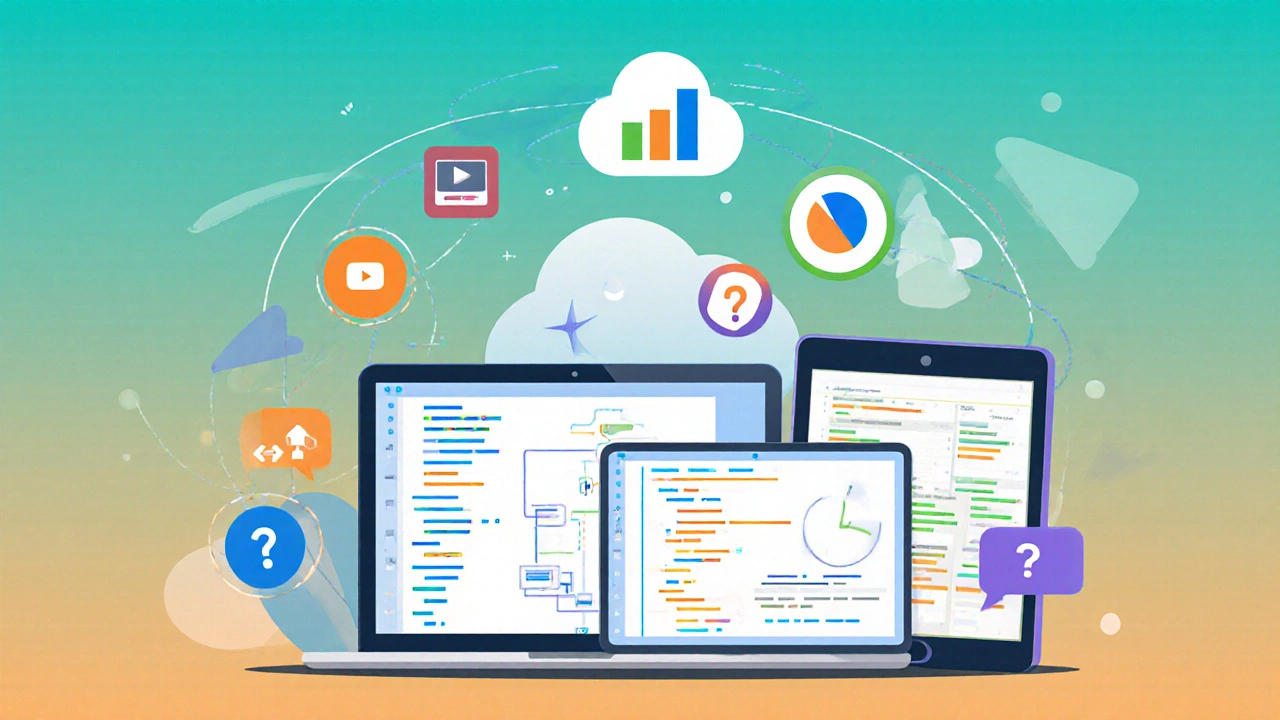Certification Path Finder
Find Your Perfect Certification Match
Answer a few questions to discover which certification program aligns best with your career goals and preferences.
Recommended Certification Program
When you’re hunting for a credential that actually opens doors, online certification program is a structured, industry‑aligned course delivered over the internet that awards a recognized certificate upon completion. In 2025 employers are looking for proof of practical skills, and a well‑chosen certificate can shave years off a job search. Below is a practical guide that helps you cut through the hype and pick the right path for the job you want.
Quick Takeaways
- Pick a program that matches a specific role - data analyst, cloud engineer, project manager, etc.
- Look for courses built with employer input and that offer a job‑ready project portfolio.
- Top providers in 2025: Coursera, edX, Udacity, LinkedIn Learning, Google Career Certificates, AWS, CompTIA, PMI.
- Expect 3‑6 months of part‑time study; costs range from $200 to $3,000.
- Average salary boost for certified workers is 12‑20% according to the 2024 Labor Market Report.
How to Choose the Right Certification
Start with three questions:
- Which job am I targeting? A data‑science role needs Python, SQL, and ML basics; a cloud‑ops job needs AWS or Azure knowledge.
- Does the provider partner with employers? Look for phrases like “hiring partners,” “career services,” or direct pipelines to companies.
- What proof will I have? A capstone project, a skill badge, or a recognized industry exam carries more weight than a generic certificate.
Once you’ve answered these, filter programs by cost, duration, and reputation. The table later in this article makes that easy.
Top Online Certification Programs for 2025
Here are the seven programs that consistently rank high across salary impact, employer recognition, and learner satisfaction.
Coursera Professional Certificates
Coursera partners with universities and tech giants. Popular tracks include Google Data Analytics, IBM Data Science, and Meta Front‑End Development. Each series offers a series of graded projects and a final exam that employers recognize.
edX MicroMasters
edX’s MicroMasters are graduate‑level clusters of courses. Fields like Cybersecurity, Project Management, and AI have a clear pathway to a full master’s degree if you choose to continue.
Udacity Nanodegree
Udacity focuses on tech‑heavy tracks such as Cloud DevOps Engineer, AI Programming with Python, and Business Analytics. The programs include mentor support, career services, and a real‑world portfolio project.
LinkedIn Learning Paths
LinkedIn Learning bundles short courses into “paths” that align with job titles on the platform. After finishing, your certificate posts directly to your LinkedIn profile, instantly visible to recruiters.
Google Career Certificates
Google offers four career‑focused certificates: Data Analytics, Project Management, UX Design, and IT Support. They’re built with Google’s hiring teams and can be completed in under six months.
AWS Certification
AWS offers role‑based certifications like Solutions Architect - Associate and Cloud Practitioner. These are highly valued in the cloud‑services market, where demand grew 28% year‑over‑year in 2024.
CompTIA Certifications
CompTIA’s A+, Network+, and Security+ are the gold standard for entry‑level IT roles. They’re vendor‑neutral, making it easy to move between companies that use different tech stacks.

Side‑by‑Side Comparison
| Provider | Typical Cost (USD) | Duration (hrs) | Job Focus | Avg. Salary Boost% |
|---|---|---|---|---|
| Coursera | $399‑$1,200 | 120‑180 | Data, UX, Cloud | 15 |
| edX | $500‑$1,500 | 150‑240 | Cybersecurity, AI | 18 |
| Udacity | $800‑$2,400 | 200‑300 | Cloud, AI, Business | 20 |
| LinkedIn Learning | $299‑$999 | 80‑150 | Project Mgmt, Marketing | 12 |
| Google Career | $399‑$1,000 | 120‑180 | Data, IT Support, UX | 14 |
| AWS | $300‑$600 | 100‑170 | Cloud Architecture | 22 |
| CompTIA | $200‑$400 | 90‑130 | IT Support, Networking | 13 |
Checklist Before You Enroll
- Verify that the certificate is recognized by at least three employers in your target industry.
- Confirm the program includes a hands‑on capstone that you can showcase on a portfolio site.
- Check for a money‑back guarantee or a free trial period - this reduces financial risk.
- Make sure you have a reliable internet connection and a quiet workspace for weekly labs.
- Plan a weekly schedule (e.g., 5‑7 hours) and set calendar reminders to stay on track.
Common Pitfalls and How to Avoid Them
Even the best‑rated courses can fall flat if you stumble on these issues:
- Choosing a “big name” over relevance. A pricey AI certificate won’t help if you aim for a project‑management role. Focus on skill‑job match first.
- Skipping the capstone. Employers love tangible work. Treat the final project as a real client assignment.
- Under‑estimating time. Part‑time learners often over‑promise. Use the table’s duration column to set realistic weekly targets.
- Neglecting networking. Many platforms offer forums or alumni groups. Engage early; a referral can be worth more than the certificate itself.
Why online certification programs Matter in 2025
The labor market is shifting faster than ever. According to the 2025 Global Skills Gap Study, 62% of hiring managers say a recent, job‑specific certificate carries more weight than a traditional degree for entry‑level roles. The flexibility of online learning lets you stack multiple credentials, creating a custom skill stack that matches emerging job titles like “Data Product Manager” or “AI Ethics Analyst.”

Frequently Asked Questions
Do I need a degree before taking these certifications?
No. Most of the programs are designed for beginners or career‑switchers. They focus on practical skills and often include introductory modules that cover foundational concepts.
How long does it take to see a salary increase after certification?
The timeline varies by industry, but the 2024 Labor Market Report shows an average of 4‑6 months for roles that directly align with the new credential, assuming you actively market your new skill set.
Are these certificates internationally recognized?
Most providers-Coursera, edX, Google, AWS-partner with global employers, so the certifications are widely accepted across North America, Europe, and Asia‑Pacific. Always verify local relevance if you plan to work in a specific country.
Can I get financial aid for these programs?
Yes. Platforms like Coursera and edX offer need‑based scholarships, and many community colleges provide tuition credits for online courses. Check each provider’s aid page for eligibility.
What’s the best way to showcase my new certificate?
Add the badge to your LinkedIn profile, upload the capstone project to a personal portfolio site, and include the certificate in the “Certifications” section of your résumé. Recruiters often search for these keywords first.

